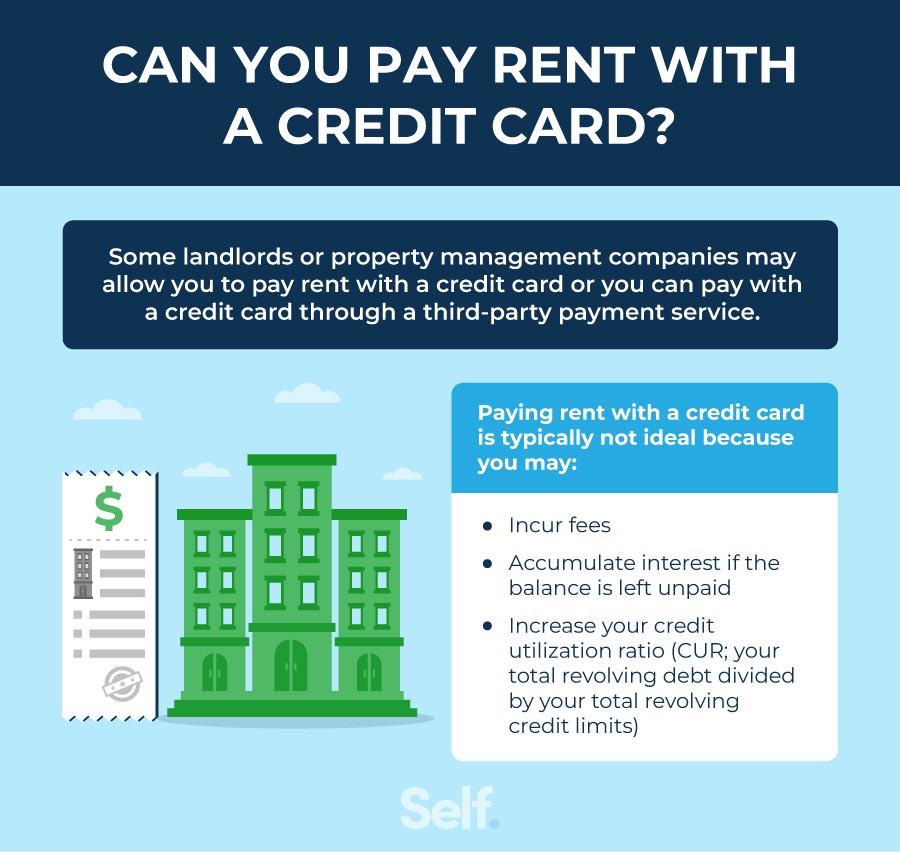Can I get a business credit card for rental property? The answer is often yes, but it depends on your financial standing and the lender’s requirements. Owning rental property can be a lucrative investment, but it also comes with its own set of financial management challenges. A business credit card can be a valuable tool for landlords, offering a range of benefits like building business credit, earning rewards, and simplifying expense tracking.
Securing a business credit card for your rental property requires meeting specific eligibility criteria. Lenders typically evaluate factors such as your credit score, business revenue, and the property’s financial performance. A strong credit history is crucial for securing a favorable interest rate and maximizing your credit limit.
Eligibility Criteria for Rental Property Business Credit Cards
Securing a business credit card specifically for your rental property business involves a careful assessment of your financial standing and the strength of your business. Lenders evaluate various factors to determine your eligibility and the terms they offer.
Credit Score Requirements
Your credit score is a crucial factor in determining your eligibility for a rental property business credit card. Lenders generally prefer applicants with good to excellent credit scores, typically above 670. A higher credit score signifies responsible financial management and a lower risk for the lender.
Business Revenue
Lenders want to ensure that your rental property business generates sufficient revenue to cover the expenses associated with the credit card. They may consider factors such as your annual rental income, occupancy rates, and the profitability of your rental properties.
Other Factors
Beyond credit score and revenue, lenders also consider several other factors, including:
- Length of Time in Business: Lenders typically prefer applicants who have been operating their rental property business for a reasonable period, often at least a year or two.
- Business Structure: The legal structure of your rental property business, such as a sole proprietorship, partnership, or LLC, can influence eligibility.
- Debt-to-Income Ratio: Lenders assess your overall debt burden relative to your income. A lower debt-to-income ratio indicates greater financial stability and a lower risk of default.
- Bankruptcy History: A history of bankruptcy can significantly impact your eligibility for business credit cards.
Importance of a Strong Credit History
A strong credit history is vital for securing a favorable interest rate on a rental property business credit card. Lenders use your credit history to assess your creditworthiness and determine the risk associated with lending to you. A higher credit score typically translates to lower interest rates, which can save you significant money over the life of the card.
Types of Business Credit Cards for Rental Property Owners
Choosing the right business credit card for your rental property can be a significant decision, as it can impact your finances, rewards, and overall business management. There are several types of business credit cards available, each with its own set of advantages and disadvantages. This guide will explore the most common types of business credit cards, helping you make an informed decision for your rental property needs.
Unsecured Business Credit Cards
Unsecured business credit cards are a popular choice for rental property owners due to their flexibility and ease of access. These cards are not backed by collateral, meaning the issuer relies on your creditworthiness and business history to determine your credit limit.
Advantages of Unsecured Business Credit Cards
- Higher Credit Limits: Unsecured cards often offer higher credit limits compared to secured cards, allowing you to manage larger expenses related to your rental property.
- No Collateral Required: You don’t need to put down any collateral, such as a deposit, to secure a credit line.
- Potential for Rewards: Many unsecured cards offer attractive rewards programs, such as cash back, travel points, or airline miles, which can offset your rental property expenses.
Disadvantages of Unsecured Business Credit Cards
- Higher Interest Rates: Due to the higher risk associated with unsecured cards, interest rates are generally higher than secured cards.
- Stricter Eligibility Requirements: You need to have a good credit history and strong business financials to qualify for an unsecured card.
- Potential for Late Fees: Late payments can result in significant penalties and can negatively impact your credit score.
Secured Business Credit Cards
Secured business credit cards are a good option for rental property owners with limited credit history or who are looking to build their business credit. These cards require a security deposit, which acts as collateral against the credit line.
Advantages of Secured Business Credit Cards
- Easier Qualification: Secured cards are generally easier to qualify for, even if you have a limited credit history or lower credit score.
- Lower Interest Rates: Secured cards typically have lower interest rates than unsecured cards due to the lower risk for the issuer.
- Credit Building Opportunity: Responsible use of a secured card can help you build your business credit, which can make you eligible for better credit terms in the future.
Disadvantages of Secured Business Credit Cards
- Lower Credit Limits: Credit limits on secured cards are typically lower than unsecured cards due to the security deposit.
- Security Deposit Requirement: You need to provide a security deposit, which is usually equal to your credit limit, which can tie up your funds.
- Limited Rewards: Secured cards often have limited or no rewards programs compared to unsecured cards.
Rewards Business Credit Cards
Rewards business credit cards are designed to help rental property owners earn rewards on their business expenses. These cards offer various rewards programs, such as cash back, travel points, or airline miles.
Advantages of Rewards Business Credit Cards
- Potential for Savings: Earning rewards on your rental property expenses can help you save money on business costs.
- Variety of Rewards Programs: You can choose a card that aligns with your specific spending habits and rewards preferences.
- Bonus Categories: Many rewards cards offer bonus categories for specific types of spending, such as travel, dining, or office supplies.
Disadvantages of Rewards Business Credit Cards
- Higher Annual Fees: Rewards cards often have higher annual fees compared to other types of business credit cards.
- Limited Redemption Options: Some rewards programs may have limited redemption options, making it difficult to maximize your rewards.
- Potential for Complicated Terms: Rewards programs can have complex terms and conditions, which can be challenging to understand.
Popular Business Credit Card Issuers for Rental Property Owners
- American Express: American Express offers a variety of business credit cards with competitive rewards programs and travel benefits, making them suitable for rental property owners who travel frequently or have significant business expenses.
- Chase: Chase is known for its extensive business credit card portfolio, offering options for various business needs, including rental property management. They provide cards with flexible rewards programs and competitive interest rates.
- Capital One: Capital One offers a range of business credit cards with attractive rewards programs and flexible credit limits, making them a popular choice for rental property owners seeking to earn rewards on their expenses.
Benefits of Using a Business Credit Card for Rental Property

Beyond the convenience of consolidating rental property expenses, utilizing a business credit card offers several advantages that can significantly impact your financial well-being and contribute to the overall success of your rental property business.
Building Business Credit
One of the most significant advantages of using a business credit card is its ability to establish and enhance your business credit score. This is crucial for securing future loans, obtaining favorable financing rates, and even attracting new tenants who may perceive a business with good credit as more reliable.
- Separate Credit History: Business credit cards create a distinct credit history for your rental property business, separate from your personal credit. This allows you to build credit specifically for your business without impacting your personal credit score.
- Positive Credit Reporting: Responsible use of a business credit card, including timely payments and maintaining a low credit utilization ratio, reports positively to business credit bureaus. This positive reporting contributes to a higher business credit score, which opens doors to better financing options.
Earning Rewards, Can i get a business credit card for rental property
Many business credit cards offer lucrative rewards programs, providing valuable perks and potential savings for your rental property business.
- Cash Back: Cash back rewards offer a direct return on your spending, allowing you to offset some of your rental property expenses.
- Travel Points: For rental property owners who travel frequently to manage their properties or attend industry conferences, travel rewards can be highly valuable, offering discounts on flights, hotels, and other travel-related expenses.
- Other Perks: Some business credit cards offer additional benefits like travel insurance, rental car discounts, or extended warranties on purchases, providing extra value and protection for your business.
Simplifying Expense Tracking
A business credit card simplifies the process of tracking and managing your rental property expenses, making it easier to stay organized and analyze your financial performance.
- Centralized Record: All your rental property expenses are consolidated on a single statement, providing a clear overview of your spending.
- Automated Categorization: Many business credit card platforms offer automated expense categorization, simplifying the process of analyzing spending by category, such as repairs, utilities, or marketing.
- Detailed Transaction Information: Business credit card statements typically include detailed transaction information, such as the date, vendor, and amount, making it easier to reconcile your accounts and identify potential discrepancies.
Business Credit Card vs. Personal Credit Card
While using a personal credit card for rental property expenses might seem convenient, using a business credit card offers several distinct advantages that can benefit your rental property business in the long run.
| Feature | Business Credit Card | Personal Credit Card |
|---|---|---|
| Credit History | Builds separate business credit history | Impacts personal credit score |
| Rewards | Offers business-specific rewards, such as cash back or travel points | May not offer relevant rewards for rental property expenses |
| Expense Tracking | Simplifies expense tracking with detailed statements and automated categorization | May require manual tracking and categorization |
| Tax Deductions | Expenses are easily deductible for tax purposes | May require more complex documentation and categorization for tax deductions |
| Liability Protection | Provides separate liability protection for business expenses | Personal assets may be at risk in case of business-related financial issues |
Streamlining Financial Management
By centralizing your rental property expenses on a business credit card, you can gain valuable insights into your spending patterns, identify areas for cost optimization, and make informed financial decisions.
- Budgeting and Forecasting: Detailed expense reports provide valuable data for budgeting and forecasting, enabling you to anticipate future expenses and plan accordingly.
- Cost Reduction: Analyzing your spending patterns can help you identify areas where you can reduce costs, such as negotiating better rates with vendors or exploring alternative solutions for repairs and maintenance.
- Financial Performance Monitoring: Tracking your expenses on a business credit card provides a clear picture of your rental property’s financial performance, allowing you to make data-driven decisions to maximize profitability.
Managing Rental Property Expenses with a Business Credit Card
A business credit card can be a valuable tool for managing rental property expenses, streamlining your finances, and maximizing your investment. By strategically using a business credit card, you can efficiently track expenses, optimize rewards programs, and leverage valuable credit card benefits to minimize costs and enhance your financial position.
Tracking and Managing Rental Property Expenses
Tracking and managing rental property expenses effectively is crucial for accurate financial reporting and efficient decision-making. A business credit card provides a centralized platform for tracking all your rental property expenses, simplifying record-keeping and ensuring compliance with tax requirements.
- Categorize Expenses: Categorize each expense according to its nature, such as repairs, maintenance, utilities, insurance, property taxes, and marketing. This categorization helps you analyze spending patterns and identify areas for potential cost optimization.
- Detailed Transaction Records: Business credit card statements provide detailed transaction records, including dates, amounts, merchants, and descriptions. These records serve as valuable documentation for tax purposes and help you reconcile your expenses with your rental income.
- Online Account Management: Most business credit cards offer online account management portals, allowing you to monitor your spending, track rewards, and manage your account conveniently from any location with internet access.
Maximizing Rewards and Benefits
Many business credit cards offer rewards programs that can significantly benefit rental property owners. By strategically using your business credit card, you can earn valuable rewards, such as cash back, travel points, or discounts on business-related expenses.
- Maximize Cash Back Rewards: Choose a business credit card that offers high cash back rewards on expenses commonly incurred for rental properties, such as repairs, maintenance, and utilities. For instance, a card offering 2% cash back on all purchases can translate to substantial savings over time.
- Leverage Travel Rewards: If you frequently travel for rental property inspections or business-related purposes, a business credit card with travel rewards can be highly beneficial. Earn points or miles on your rental property expenses, which you can later redeem for free flights, hotel stays, or other travel perks.
- Take Advantage of Perks and Discounts: Some business credit cards offer exclusive perks and discounts on business-related expenses, such as rental car discounts, travel insurance, or extended warranties. Utilize these benefits to save money on your rental property operations.
Responsible Credit Card Usage
While business credit cards offer numerous benefits, responsible usage is crucial to avoid excessive interest charges and maintain a healthy credit score.
- Pay Your Balance in Full: Always strive to pay your credit card balance in full each month to avoid accruing interest charges. Interest rates on business credit cards can be high, so minimizing interest payments is essential for financial well-being.
- Monitor Your Credit Utilization: Credit utilization ratio is the percentage of available credit you’re currently using. Aim to keep your credit utilization ratio below 30% to maintain a good credit score. High credit utilization can negatively impact your creditworthiness.
- Set Spending Limits: Establish spending limits for your business credit card to prevent overspending and ensure you can comfortably manage your monthly payments.
Risks and Considerations When Using a Business Credit Card for Rental Property

While business credit cards can be valuable tools for rental property owners, it’s crucial to be aware of potential risks and carefully consider your options before applying. Using a business credit card responsibly requires a clear understanding of its implications and the commitment to responsible financial management.
High Interest Rates and Overspending
High interest rates are a significant concern with business credit cards. If you carry a balance, the interest charges can quickly add up, potentially eroding your rental income and increasing your debt burden. To mitigate this risk, it’s essential to pay your balance in full each month or at least make more than the minimum payment. This will help you avoid accruing substantial interest charges.
Impact on Personal Credit
While business credit cards are typically separate from personal credit, some cards may report your business credit activity to personal credit bureaus. This can affect your personal credit score if you fail to make payments on time or carry a high balance. Therefore, it’s crucial to check the card’s terms and conditions to understand how your business credit activity will impact your personal credit.
Budgeting and Financial Planning
To avoid debt accumulation and ensure responsible credit card usage, it’s crucial to establish a comprehensive budget for your rental property. This budget should include all anticipated expenses, such as mortgage payments, property taxes, insurance, maintenance costs, and utilities. By allocating funds for these expenses, you can better manage your cash flow and avoid exceeding your credit limit.
Considerations Before Applying for a Business Credit Card
- Research and Compare Options: Thoroughly research different business credit cards available to find one that aligns with your specific needs and financial situation. Consider factors such as interest rates, rewards programs, annual fees, and credit limits.
- Understand the Terms and Conditions: Carefully review the terms and conditions of each card before applying. Pay close attention to interest rates, fees, and any restrictions on how you can use the card.
- Evaluate Your Credit Score: Your credit score plays a significant role in determining your eligibility for a business credit card and the interest rate you’ll receive. A higher credit score generally translates to better terms. If you’re unsure of your credit score, you can obtain a free credit report from the three major credit bureaus.
- Consider Your Existing Debt: Before applying for a new business credit card, assess your existing debt obligations. If you’re already carrying a significant amount of debt, adding another card might make it difficult to manage your finances effectively.
Outcome Summary

A business credit card can be a valuable tool for managing rental property expenses, but it’s essential to approach it responsibly. By understanding the eligibility criteria, exploring different card options, and utilizing best practices for managing expenses, you can leverage the benefits of a business credit card to enhance your rental property investment.
Question Bank: Can I Get A Business Credit Card For Rental Property
What are the advantages of using a business credit card for rental property expenses?
Using a business credit card for rental property expenses can offer several advantages, including building business credit, earning rewards, simplifying expense tracking, and potentially obtaining better interest rates than personal credit cards.
Can I use a business credit card for personal expenses related to my rental property?
It’s generally recommended to use a business credit card solely for business-related expenses. Mixing personal and business expenses on the same card can complicate accounting and potentially affect your business credit score.
How can I avoid high interest charges on my business credit card?
To avoid high interest charges, it’s crucial to pay your balance in full each month or at least make more than the minimum payment. You can also consider cards with lower interest rates or explore options like balance transfers to potentially reduce interest charges.
What are some tips for responsible credit card usage?
Some tips for responsible credit card usage include setting a budget, tracking your spending, paying your bills on time, and avoiding carrying a high balance. It’s also essential to understand the terms and conditions of your card and any applicable fees.
 Norfolk Publications Publications ORG in Norfolk!
Norfolk Publications Publications ORG in Norfolk!

